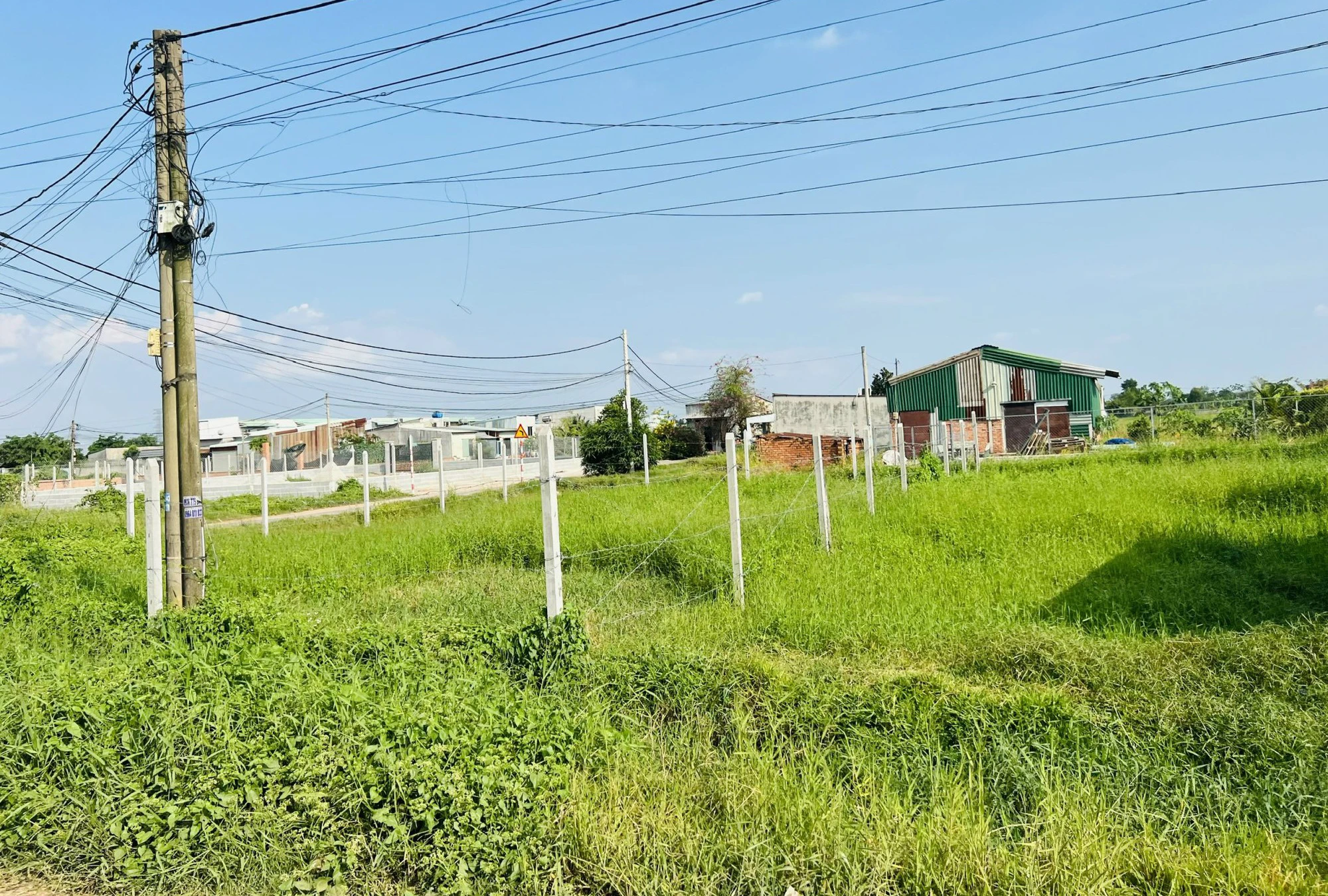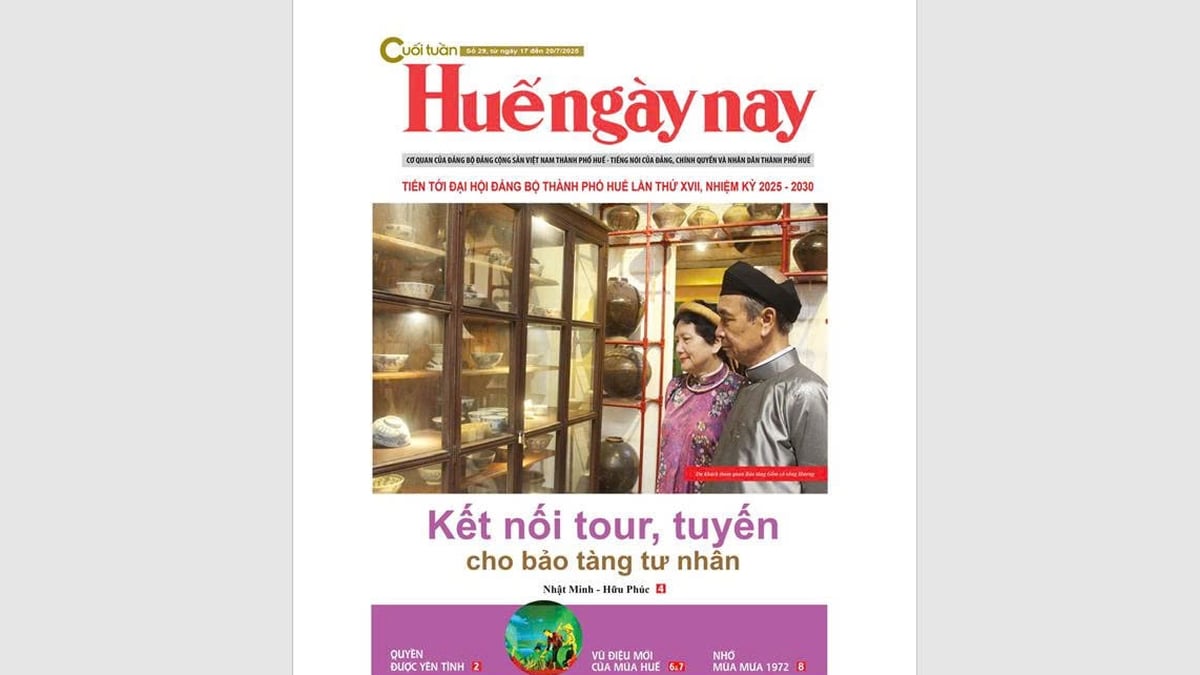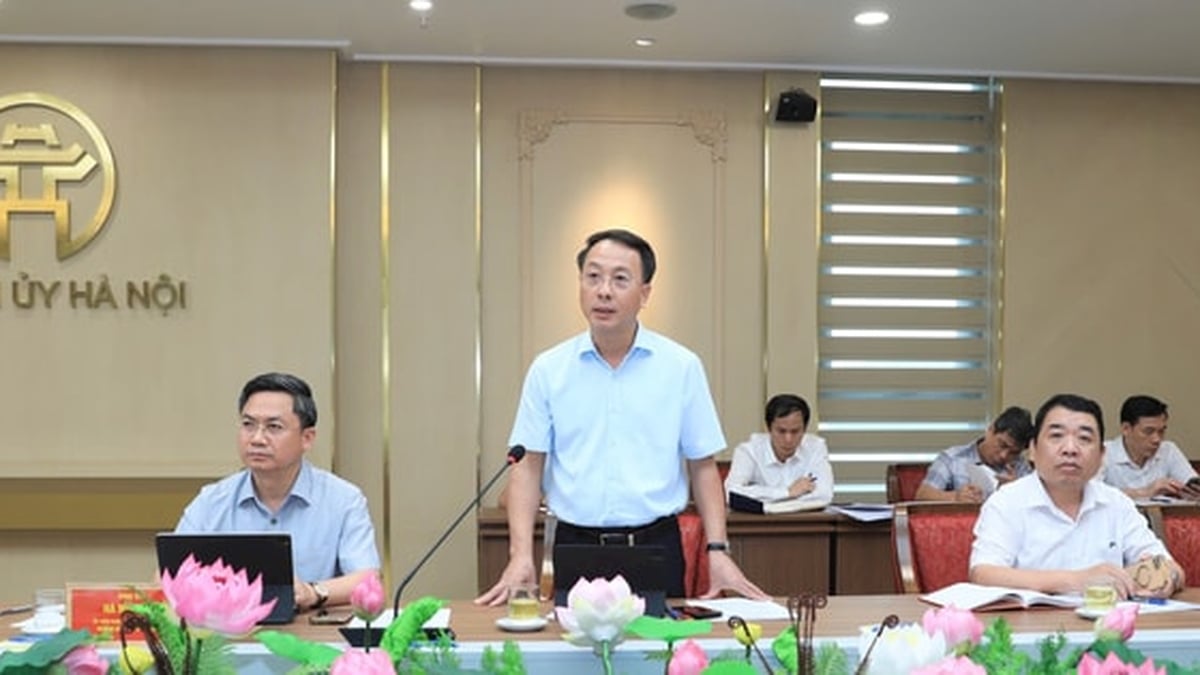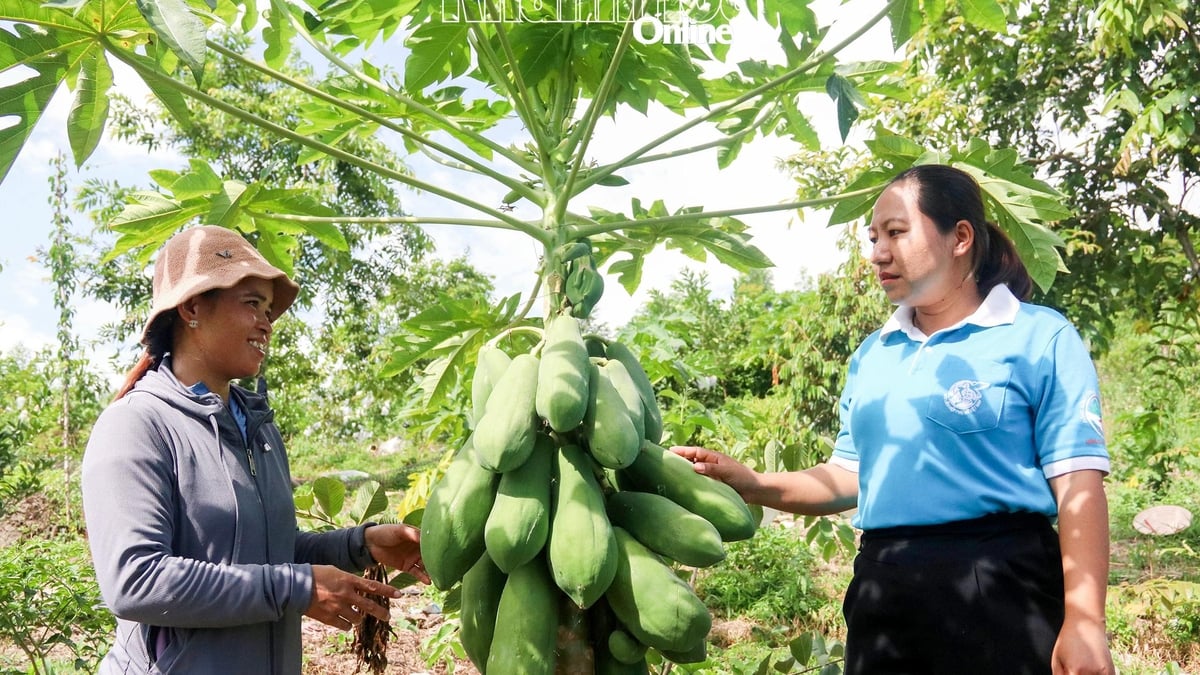Removing difficulties for remote areas
Accordingly, the draft stipulates the time for recognizing land use rights for households and individuals who are using land, do not have documents on land use rights, do not violate land laws, and are not in cases of unauthorized land allocation before July 1, 2014. Thus, the draft extends the time by 10 years compared to the old regulations. The Government also proposed that the National Assembly Standing Committee study proposals and comments to coordinate in perfecting the Land Law (amended) to submit to the National Assembly for consideration and approval at the 5th extraordinary session (expected in January 2024), to promptly remove obstacles and unblock land resources for socio -economic development.

Land being used by people without documents, allocated before July 1, 2014 can be granted a red book.
Lawyer Hoang Thu (Ho Chi Minh City Bar Association) analyzed that if the above regulation is passed, it will solve the problem of granting red books for cases of land use with origin left by ancestors and being used stably. These are still common cases, especially in rural areas. The conditions for granting red books for these cases are that they do not violate land laws and are not assigned without authority as stipulated in the draft law and the land must be in accordance with the planning. At the same time, they must not be cases of land encroachment or arbitrary change of land use purpose.
Therefore, the new regulation is not intended to legalize violations of land laws. According to lawyer Hoang Thu, there is currently a situation in many places, especially in remote provinces, where the government has notified people to make red books, but people are not interested because they do not have money to pay taxes and fees. However, if they are not issued, they cannot be managed.
"Most of the land is left by our ancestors. People in remote areas do not care about paperwork. Since any land can be used to build a house, they do not want to get a red book. Issuing a red book for land without paperwork is mainly to help remote areas," lawyer Hoang Thu analyzed.
Lawyer Nguyen Duc (Ho Chi Minh City Bar Association) commented that the draft Land Law (amended) extending the deadline to July 1, 2014 is the result of receiving public opinions during the consultation process to resolve the issue of red books for households that have lived there for a long time (before July 1, 2014, have houses, works serving the household's daily life...) but have not yet been recognized for land use rights.
"According to the provisions of the 2013 Land Law, to be granted a red book if the land does not have documents, one of the important bases is that the land must be used stably. However, in the draft Land Law (amended), this requirement is no longer required. Thus, officially asking for opinions on implementing this provision also helps to reduce difficulties and expand opportunities for individuals and households without land use rights documents, helping them have the opportunity to have their land use rights recognized without having to satisfy long-term conditions as before," said lawyer Nguyen Duc.
Expand the scope of the book
Most experts agree with the new regulations in the draft because when land plots are granted red books, the state will have enough database to manage. The state also benefits because it collects an additional amount of land use fees, taxes, and fees. When people are granted red books, they will feel secure in using them, and can even use them to borrow money from banks to do business. When there is a red book, the transfer is also easier and more valuable than land without a book.
Mr. Le Hoang Chau, Chairman of the Ho Chi Minh City Real Estate Association, commented that the issuance of red books for this case is reasonable and appropriate and is the responsibility of the state for better management. The issuance of red books is also very simple and easy. Like many cases where grandparents and parents use land without making red books because they do not need them. But now, when their children and grandchildren need to be issued red books, the state must be responsible for resolving the issue. There are even cases where people have been in good faith in possession for a long time, using the land stably without anyone complaining or having any disputes, then the books must be issued to them. This is also in line with the spirit of the Civil Code.
"It is necessary to issue red books for these cases soon so that the government can easily manage them. If people are in difficulty and do not have money to pay land use fees, the government currently has a policy of tax debt for up to 5 years," said Mr. Chau.
In fact, currently, Clause 2, Article 82 of Decree 43 also allows the issuance of land use right certificates for cases of receiving transfers, inheritances, and gifts by handwritten documents before July 1, 2014. Now, with the new regulations in the draft, it will be expanded to cases without documents, that is, to expand the subjects. As in Ho Chi Minh City, the Department of Natural Resources and Environment has assigned the Ho Chi Minh City Land Registration Office to direct the branches of the Land Registration Offices of districts and Thu Duc City to base on the actual situation in the locality, coordinate with the Department of Natural Resources, the Department of Urban Management, and the People's Committees of wards and communes, to determine the conditions for issuing red books to people.
The People's Committees of districts and Thu Duc City, based on the local situation, shall develop a coordination mechanism with these agencies and units in reviewing records and handling related violations... The issuance of red books for houses and land bought and sold by hand shall only be carried out after the competent authority has handled land violations.
Mr. Nguyen Toan Thang, Director of the Department of Natural Resources and Environment of Ho Chi Minh City, specifically explained that in order to issue red books, it is necessary to consider issues such as the time of buying and selling handwritten documents; handling land violations, construction violations (fines, forced demolition or registration, forced return of illegal profits, etc.); reviewing planning, ensuring compliance with regulations on land division limits and infrastructure, etc.
From there, each specific case is determined to be eligible for a red book. Real estate transferred by hand-written documents has existed for many periods, and may arise later due to the purchase and sale of hand-written documents without confirmation from the competent authority, so checking the authenticity of the time of purchase and sale is unfounded, and can easily be exploited to violate regulations. If not strictly implemented, it can easily lead to a situation of "circumventing the law" by dividing land plots without ensuring the limit.
The issuance of red books for these cases according to legal regulations must consider and handle administrative violations in the land sector. The issuance of red books for each case must also be based on planning, land use plans, land division conditions, and infrastructure to decide. These are issues under the authority of the People's Committee of the district.
In addition, Mr. Bui Xuan Cuong, Vice Chairman of the Ho Chi Minh City People's Committee, has just directed and requested functional agencies to classify types of documents, determine implementation time, and build a coordination mechanism between agencies and units in granting red books for real estate bought and sold by hand.
According to statistics from the Ministry of Natural Resources and Environment, up to now, over 97.6% of the land area nationwide has been granted red books for the first time. Of which, agricultural land accounts for over 93%, forestry land accounts for over 98%, aquaculture land accounts for over 87%, rural residential land accounts for over 96%, urban residential land accounts for over 98%, specialized land accounts for over 87%, and religious facilities accounts for over 83%.
Source link




















































![[Maritime News] More than 80% of global container shipping capacity is in the hands of MSC and major shipping alliances](https://vphoto.vietnam.vn/thumb/402x226/vietnam/resource/IMAGE/2025/7/16/6b4d586c984b4cbf8c5680352b9eaeb0)













































Comment (0)